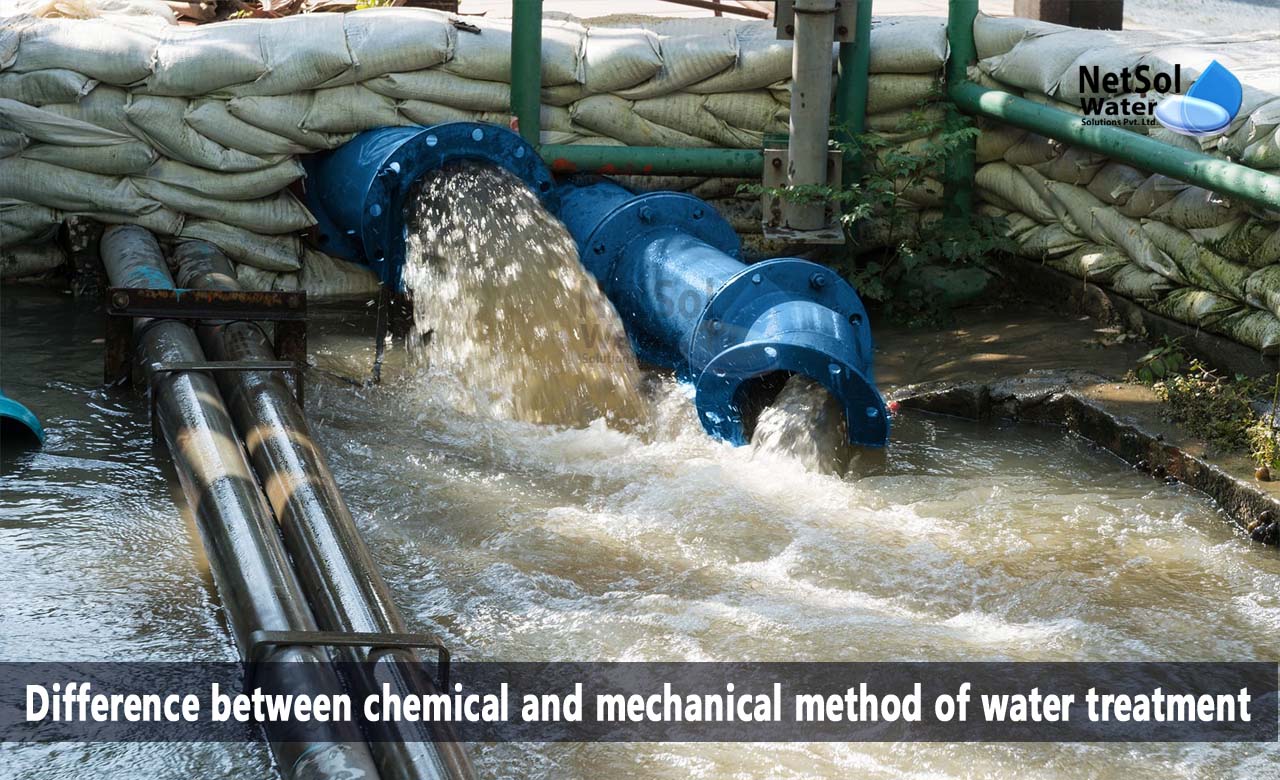Tens of millions of people are exposed to contaminated well and city water. Therefore, the awareness of this generation is only now growing. These contaminants include residues, fecal coliform, lead, arsenic, etc. Cancer, gastrointestinal conditions, delays in children's development, and a long list of other disorders, can all be brought on by contaminated water.
Difference between chemical and mechanical method of water treatment
Water Pollution
Water is essential for life. It makes up between 55% and 75% of your body. Because of this, early towns typically started close to a water supply. Unfortunately, until the 1850s, no one understood the link between our water supplies and the water pollution, which led to epidemics of diseases, like cholera and typhoid.
For millennia, human waste was carried by our rivers throughout India. In addition to being utilized as sewage dumping grounds, rivers and streams were also employed as industrial garbage dumps. As the Industrial Revolution advanced, more contaminants entered our streams, causing water pollution.
Chemical water treatment method
Public water sources have previously undergone chemical treatment to comply with CPCB standards. To assist eliminate further pollutants and toxins that seep in, chemical treatment is used. Chemical cleaning is a technique to remove unwelcome impurities from equipment surfaces and walls, pipes, containers, kettles, and heat exchangers. Chemical cleaning is a disinfection procedure that uses potent chemical cleaners.
To put it simply, chemical treatment is the preferred method of making water safe. It aids in meeting the standards and is typically already in use.
We are aware that it isn't 100 percent secure. And, chemical treatment is obviously a problem for naturalists. And for many others, it might develop into a health issue. Chemical treatment residue can end up at your tap, and have unintended negative effects in addition to harming your pipes and appliances.
Mechanical water treatment method
Although, the chemical spill into our public water system cannot be stopped, you may regulate how the water gets to your tap. For the removal of chemical residues, pollutants, particulates, and toxins that persist after chemical treatment, mechanical treatment offers a comprehensive solution.
It is made up of filters and cutting-edge water purification technologies. And, mechanical treatment also provides a wide range of alternatives tailored to the requirements of your home.
Procedures for mechanical water treatment
1. Water Filtration systems
2. Reverse Osmosis
3. Ultraviolet treatment
4. Water Softeners
5. Distillation
6. ETPs
7. STPs
8. WWTPs
Mechanical treatment is safe for both humans and the environment, and it works well with your appliances as well.
How can we help?
You may learn to love your water with the help of Netsol Water water and wastewater treatment plants. It is possible to get the greatest water from the tap! We offer a range of mechanical treatment systems to meet your requirements and financial constraints.
Netsol also combines cutting-edge technology with years of experience to handle the most challenging water treatment, or wastewater treatment requirements of a wide range of clients, including small enterprises, corporations, and regional government agencies.
Netsol Water is Greater Noida-based leading water & wastewater treatment plant manufacturer. We are industry's most demanding company based on client review and work quality. We are known as best commercial RO plant manufacturers, industrial RO plant manufacturer, sewage treatment plant manufacturer, Water Softener Plant Manufacturers and effluent treatment plant manufacturers. Apart from this 24x7 customer support is our USP. Call on +91-9650608473, or write us at enquiry@netsolwater.com for any support, inquiry or product-purchase related query.



